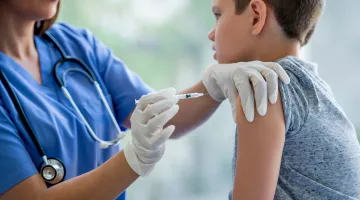Physician Perspective: Potential Public Health Risks of Legal Marijuana
Author

Jason Tracy, MD, Chair of Emergency Medicine
Each year, South Shore Hospital sees nearly 100,000 patients, with approximately 20 percent of those being under the age of 21. We see everything – including the devastating toll opioid and alcohol abuse has taken on our community. This is before increasing the availability of marijuana—another drug that can be abused.
In 2016, Massachusetts voters legalized the use of recreational marijuana. Given the early research out of states like Colorado and Washington that have had legal marijuana for a few years, I’m concerned about the negative impact legal marijuana will have on our community—and especially on our youngest residents.
Marijuana has a reputation as a “benign” or “natural” drug, but marijuana abuse has real effects on public health. Here are a few trends the team at South Shore Hospital’s Emergency Department anticipates will become more prevalent as marijuana becomes more widely available.
More Emergency Department Patients
After Colorado legalized marijuana, the state’s emergency departments reported a 29 percent increase in marijuana-related visits and a 38 percent increase in marijuana-related hospitalizations—all in the first year.
Much of this increase can be attributed to the popularity of edible forms of marijuana—such as candies and cookies laced with tetrahydrocannabinol (THC). Since there’s a delay between ingesting THC and feeling its effects, adults and adolescents can eat too much in an attempt to accelerate the high—then need medical care because they’ve had too much of the drug.
In addition, young children often can’t tell the difference between a food product laced with THC and one without. South Shore Hospital has already had to admit children who’ve been exposed to edibles—and data from other states shows we should expect that number will grow as retail outlets open and more edible products are available.
More Trauma Patients
As Southeastern Massachusetts’ only Level II Trauma Center, we already see trauma patients from car accidents, many caused by drivers using opioids and alcohol. Legal marijuana will only increase this number. In other states, traffic deaths related to marijuana use increased an average of 48 percent in the three years following legalization of recreational marijuana when compared to the three years prior to marijuana legalization. In the same time period, all traffic deaths increased just 11 percent.
The risk for fatal crashes increases when alcohol is combined with other drugs, including marijuana. The increase is most dramatic among young adults between 16 and 20 years old. The percentage of drivers in Washington state with active THC in their blood involved in fatal driving accidents increased 122.2 percent from 2010 to 2014. Prior to marijuana legalization in Colorado, 10 percent of all traffic deaths were marijuana-related. In 2014, after legalization, that doubled to 20 percent.
More cases of Cannabis Hyperemesis
A relatively recent trend we’ve seen in the South Shore Hospital’s Emergency Department is young males with cannabis hyperemesis syndrome—sometimes called cyclic vomiting syndrome. This condition is usually seen in patients who use marijuana frequently, but can also be seen with acute use.
Symptoms of cannabis hyperemesis are severe abdominal pain and persistent vomiting. The symptoms are typically relieved by hot showers or frequent bathing. In the Emergency Department, we’ve started to use topical capsaicin cream to treat these patients—yes, a cream made from the component that makes chili peppers spicy.
We don’t know pathophysiology of why marijuana can cause cyclic vomiting. But it’s awful to see the pain and suffering that these patients go through. And we expect to see more patients with these symptoms. The prevalence of cyclic vomiting presentations nearly doubled after the liberalization of medical marijuana in Colorado. This mirrors what we are seeing at South Shore Hospital.
Despite warnings from respected organizations like the Massachusetts Medical Society, Massachusetts Health and Hospital Association, American Academy of Pediatrics, American Medical Association and the Association for Behavioral Healthcare, legal marijuana is the law of the land. Pot is not without its dangers. It’s up to adults to have conversations with adolescents and children about the risks of marijuana use—especially at a young age.
To learn more about the risks of marijuana use for young people, keep an eye out for South Shore Health's "Weeding Through the Myths: Marijuana in Massachusetts" exhibit as it tours the South Shore in the coming months. This exhibit was created by Youth Health Connection.
Author

Jason Tracy, MD, Chair of Emergency Medicine






